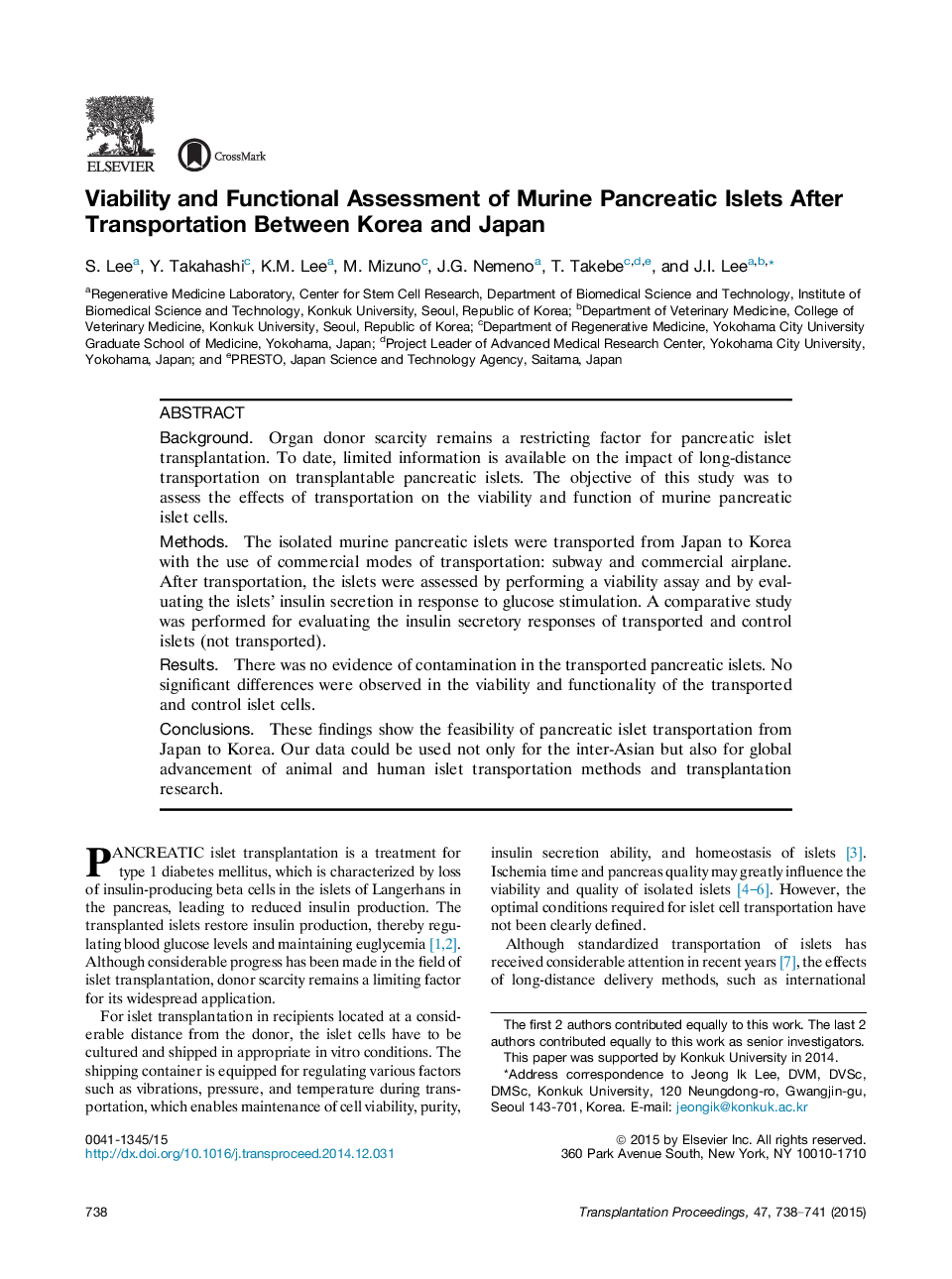| Article ID | Journal | Published Year | Pages | File Type |
|---|---|---|---|---|
| 6247869 | Transplantation Proceedings | 2015 | 4 Pages |
â¢This is the first study of the impact of islet transportation between Korea and Japan.â¢We demonstrate the feasibility of islet transportation from Japan to Korea.â¢We used common commercial transportation systems for islet transportation.â¢This work provides basic data for an advancement of inter-Asia or global islet transportation research.
BackgroundOrgan donor scarcity remains a restricting factor for pancreatic islet transplantation. To date, limited information is available on the impact of long-distance transportation on transplantable pancreatic islets. The objective of this study was to assess the effects of transportation on the viability and function of murine pancreatic islet cells.MethodsThe isolated murine pancreatic islets were transported from Japan to Korea with the use of commercial modes of transportation: subway and commercial airplane. After transportation, the islets were assessed by performing a viability assay and by evaluating the islets' insulin secretion in response to glucose stimulation. A comparative study was performed for evaluating the insulin secretory responses of transported and control islets (not transported).ResultsThere was no evidence of contamination in the transported pancreatic islets. No significant differences were observed in the viability and functionality of the transported and control islet cells.ConclusionsThese findings show the feasibility of pancreatic islet transportation from Japan to Korea. Our data could be used not only for the inter-Asian but also for global advancement of animal and human islet transportation methods and transplantation research.
